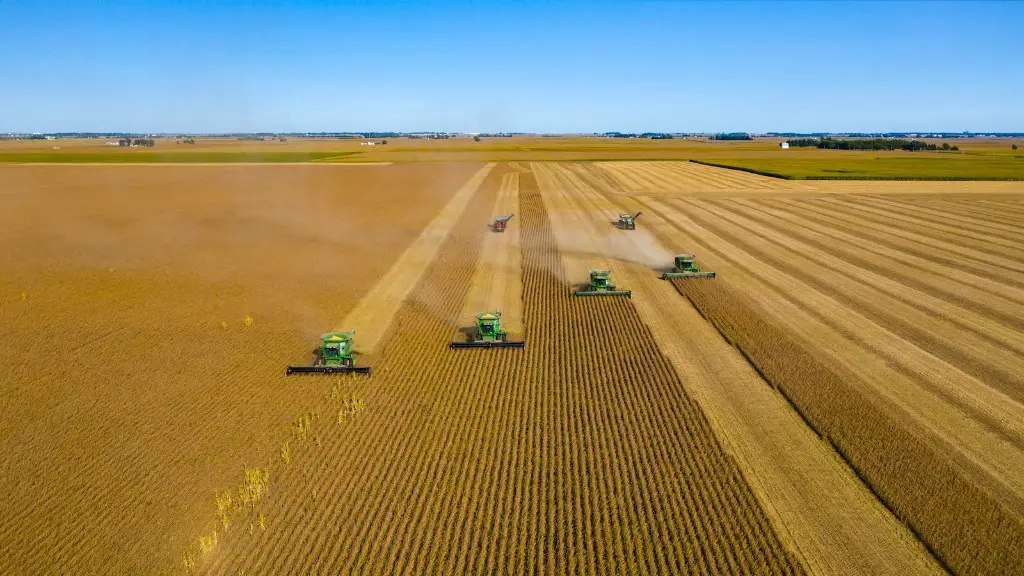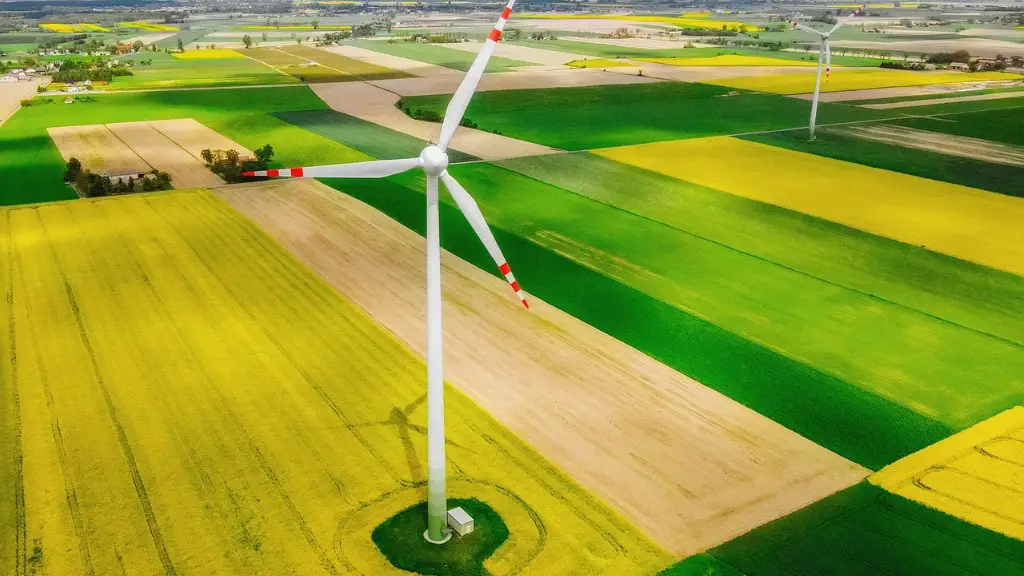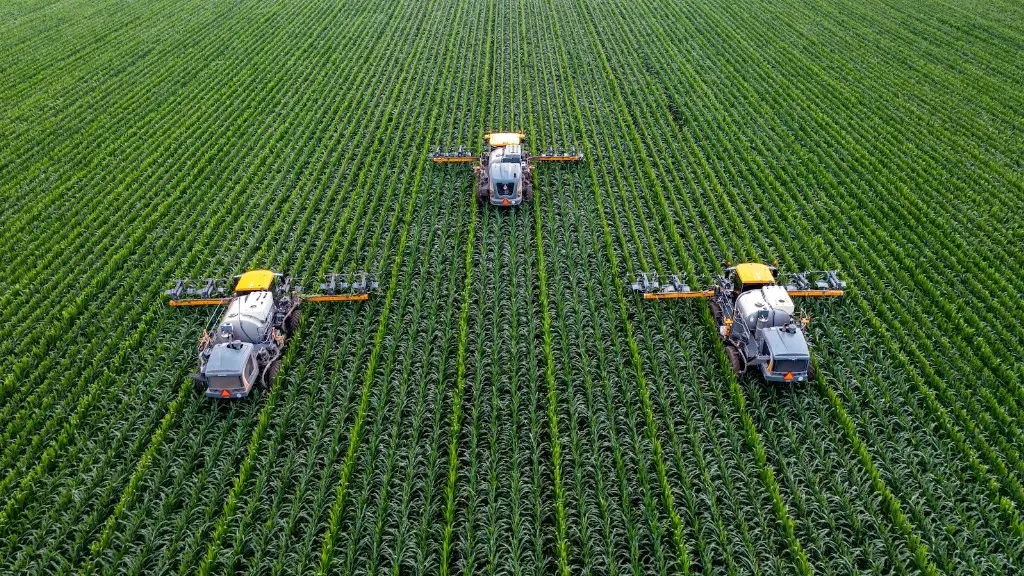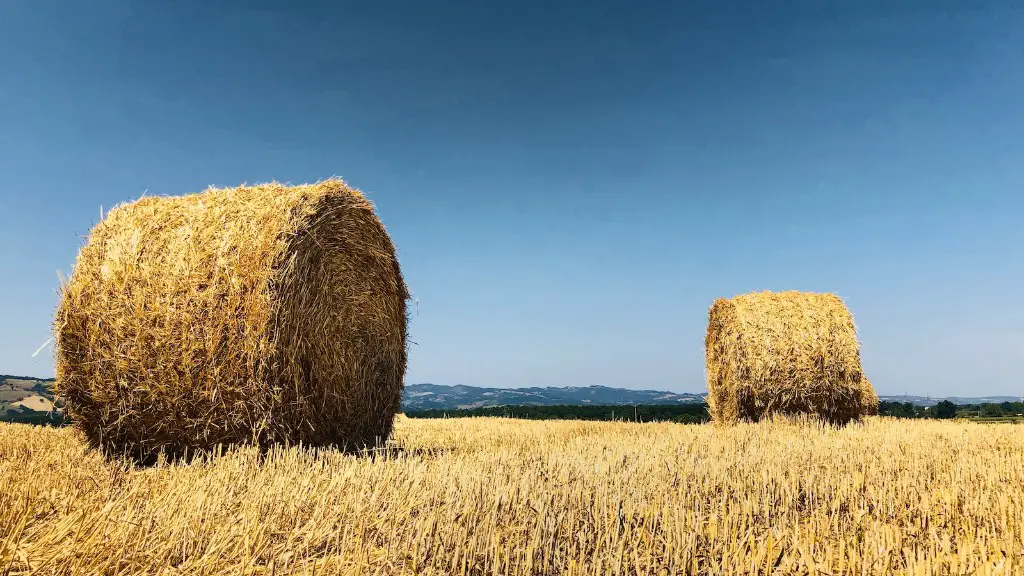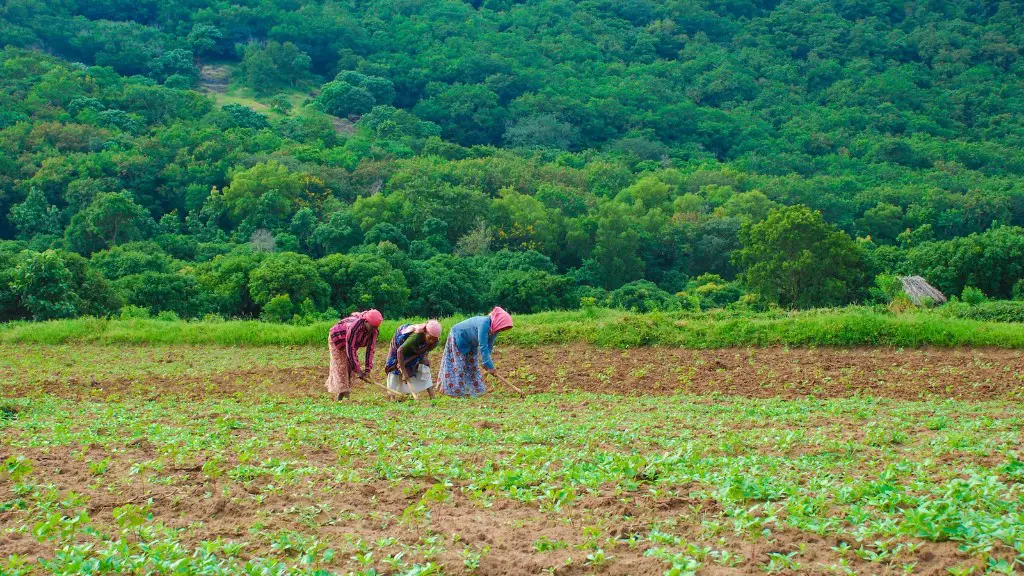Agriculture is a vital sector in any economy, providing livelihoods for millions of people and a host of essential products. However, the sector is also fraught with a range of problems that can impede its productivity and sustainability. These include problems of access to land and capital, inadequate infrastructure, climate change, and insufficient policy.
Land is a finite and irreplaceable resource, and its access and ownership is a major bottleneck within many developing economies. The limits of the land availability and its distribution can cause a great deal of strain for many rural farming populations. For example, inadequate access to land makes it difficult for small-scale farmers to compete with large-scale farming operations, and this is especially true in countries with limited cultivable land.
Inadequate access to capital is a parallel issue. Not only is land a limited commodity, but the capital to make profitable use of it is also often lacking. This is especially true in rural communities, where less developed financial systems are typically found. Additionally, limited access to inputs such as fertilizers, seeds, and agrichemicals can significantly reduce yield levels, while increasing the cost of production.
The issue of scale is further exacerbated by inadequate infrastructure. Poor road and rail networks can prevent crops from reaching the market in time, or lead to losses in quality. Additionally, limited irrigation systems and storage facilities can further extend the contrast between smaller-scale farmers and larger operations.
Climate change is another major challenge to the sector. It is well recognized that increased temperatures, lower rainfall, and extreme weather events can cause significant losses to crop yields, as well as disrupting seasonal production cycles. This is particularly true in water-stressed economies, where an already limited resource is further impacted by rising temperatures.
Finally, lack of effective policy can result in missed opportunities and limited incentives for producers and investors. Inadequate organizational capacity may lead to ineffective implementation of policies, which can further threaten the sustainability of the agriculture sector. Additionally, limited funding for rural development programmes can further increase the gap between small-scale farmers and larger operations.
Access to Land
Access to land remains a major challenge for many farmers, especially in developing countries. In some cases, access to land is limited due to its distribution. For example, in many countries a large proportion of land may be owned by a few individuals, which makes it difficult for smaller-scale farmers to compete with larger operations. In other cases, land may be available but farmers are unable to afford it, due to limited access to capital or other resources. These factors can have serious implications on agricultural productivity, as well as other socio-economic outcomes.
The impacts of inadequate access to land can be severe. Small-scale producers are typically less productive, less competitive, and more vulnerable to degraded soils and climate-related shocks. Additionally, it can have a detrimental impact on the rural economy, as limited livelihood opportunities lead to increased migration, underemployment, and poverty.
In order to address this issue, it is essential that governments recognise the importance of sustainable land access and put in place policies that are designed to promote equitable access and ownership. This could include targeted financial interventions and targeted land reforms, as well as the provision of appropriate technical support for smallholder farmers.
Furthermore, the role of community-managed schemes in land access should not be overlooked. Such approaches can promote locally tailored solutions that are designed to fit the specific needs and conditions of the local farming community.
Ultimately, access to land remains an essential factor in agricultural productivity and economic development. Without adequate access and ownership, rural populations are likely to remain impoverished and unable to contribute to the wider economy.
Access to Capital
Like land, access to capital is also a major challenge faced by the agriculture sector. Small-scale farmers in particular are typically unable to access bank credit and other forms of financing, due to their limited collateral and lack of access to financial systems. This creates a major gap between large-scale operations and their smaller counterparts.
The specific impacts of limited access to capital on the agri-sector are multi-faceted. Not only can capital shortages result in lower agricultural productivity, but they can also prevent farmers from investing in better equipment and inputs, such as agricultural chemicals and seeds. This can then lead to reduced yields and higher costs of production.
In order to address this issue, policies must be designed to promote access to finance for small-scale producers. This could include targeted credit programmes, such as microfinance and microcredit, as well as the provision of technical support to help producers improve their operations. Additionally, governments should consider providing tax incentives to encourage private investors to invest in the agricultural sector.
The role of new technologies should also be taken into account. For example, the use of mobile banking systems could be used to facilitate access to credit, while the use of satellite imagery could help to reliably track yield levels and inform decision making.
Ultimately, access to capital is essential for smallholders. Without it, they are less able to improve their productivity, become competitive in the market, and respond to climate-related shocks.
Inadequate Infrastructure
Inadequate infrastructure is another major bottleneck faced by the agriculture sector. Poorly developed roads and rail networks can lead to wasted time and reduced efficiencies, while inadequate irrigation systems can result in lower yields. Likewise, limited storage facilities can lead to higher rates of spoilage and losses of quality.
The impacts of inadequate infrastructure can be significant. Poor road networks can lead to crops not reaching the market in time, or being damaged due to improper handling. Additionally, limited storage facilities can reduce farmer’s access to markets and cause increases in wastage. Furthermore, inadequate irrigation systems can lead to reduced production levels, and a lack of access to markets can prevent producers from fully benefiting from higher yields.
In order to address these issues, governments should consider investing in the development of infrastructure, such as roads, rail networks, and storage facilities. Additionally, they should also consider investing in the expansion of irrigation systems, as well as providing support for the adoption of modern technologies.
The role of the private sector should also not be overlooked. Private companies have the potential to provide much-needed capital for the sector, including for infrastructure development and the provision of services, such as warehousing and storage.
Ultimately, adequate infrastructure is essential for the smooth functioning of the agricultural sector. Without it, rural populations may remain unable to benefit from higher yields and increased productivity.
Climate Change
Climate change is another major challenge to the sector. Increased temperatures, changing rainfall patterns, and extreme weather events can all have significant impacts on yields and production cycles. This is particularly true in water-stressed economies, where higher temperatures can compound the effects of scarcity.
The impacts of climate change are multi-faceted. Warmer temperatures can lead to changes in the timing and length of production cycles, while increased extreme weather events can result in greater losses in crop yields. Additionally, shifts in rainfall patterns can cause droughts and flooding, further reducing productivity.
In order to address this issue, it is essential that governments recognise the importance of climate change and put in place policies and programmes that are designed to reduce emissions and improve agricultural resilience. This could include providing support for farmers to adopt climate-smart farming and conservation practices, such as the use of drought-tolerant crops and water-efficiency measures.
Furthermore, governments could consider investing in early warning systems and other climate-related services. These could offer farmers and other stakeholders timely information on weather and climate events, allowing them to plan for and mitigate potential impacts.
Finally, the role of research and development should also be taken into account. Beyond the adoption of existing methods and technologies, innovative solutions should be encouraged in order to ensure farmers can cope with the changing climate.
Insufficient Policy
The effectiveness of available policies can also be an issue. Ineffective implementation of policy can cause crucial opportunities to be missed, while limited funding for rural development programmes can further widen the gap between small-scale producers and larger operations.
The exact impacts of inadequate policy depend on the specific context. In some cases, ineffective implementation of policy may lead to producers being unable to access the markets, limited participation in support programmes, or inadequate access to essential inputs. Additionally, limited funding for rural development programmes can further increase the vulnerability of smallholders and other vulnerable populations.
In order to address this issue, it is essential that governments strengthen their capacity for policy implementation, and ensure that relevant policy is accessible to all producers. This could include better coordination between government departments, and improved communication with smallholder producers.
Furthermore, a greater focus should be placed on achieving sustainable agricultural development. This could involve designing policies that are in line with the principles of sustainable development, and promoting approaches that are sensitive to the potential environmental impacts of agricultural activities.
Finally, subsidies have a role to play. Subsidies can provide a much-needed lifeline to producers, and can help to alleviate the burden of production costs. However, they should be used in combination with other measures, such as the provision of technical advice, in order to ensure sustainable agriculture.
Organizational Capacity
Finally, the issue of organizational capacity should not be overlooked. Limited organizational capacity can prevent the effective implementation of existing policies or programmes, and can lead to missed opportunities for the sector.
More specifically, insufficient capacity in terms of resources, skills, and knowledge can lead to inefficient public service delivery, and can undermine investment in rural areas. Additionally, the bureaucracy associated with government organisations can further impede the process of policy implementation.
In order to address this issue, it is essential that governments strengthen their organizational capacity. This could involve investing in the training and development of personnel, as well as recruiting personnel with the appropriate skills and knowledge. Additionally, the use of technology could also be considered, in order to streamline the process of policy implementation.
The role of the private sector should also be taken into account. Private companies have the potential to provide much-needed expertise in policy development, as well as the resources to conduct research and analysis. These companies could also assist in the design of specific programmes and initiatives.
Ultimately, organizational capacity remains essential for the effective implementation of policies and programmes. Without it, the potential of the sector may remain untapped or assets may remain under-utilized.

